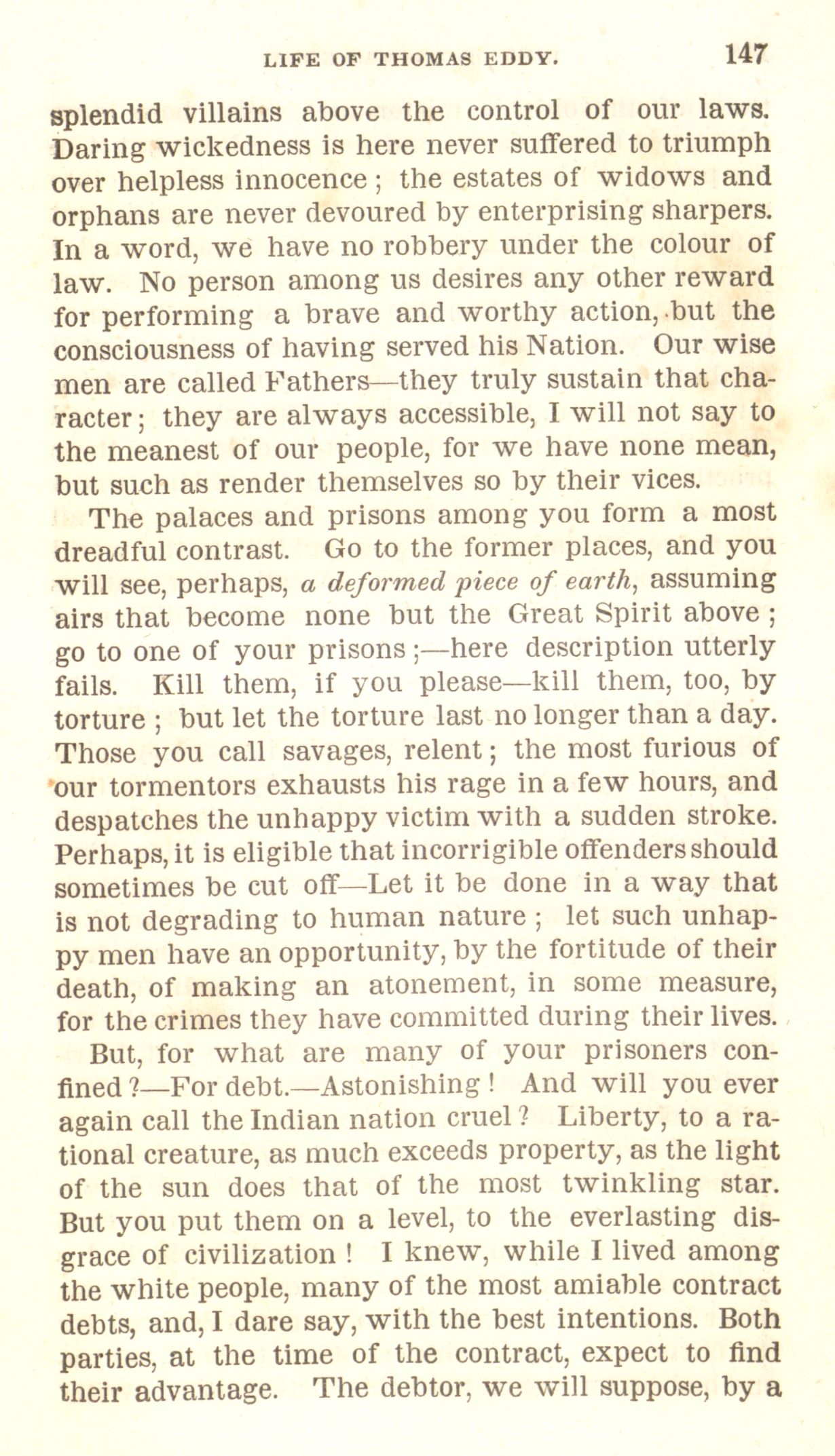splendid villains above the control of our laws.
Daring
wickedness is here never suffered to triumph
over helpless
innocence; the estates of widows and
orphans are never devoured by
enterprising sharpers.
In a word, we have no robbery under the
colour of
law. No person among us desires any other reward
for
performing a brave and worthy action, but the
consciousness of
having served his Nation. Our wise
men are called Fathers—they truly
sustain that cha-
racter ; they are always accessible, I will not
say to
the meanest of our people, for we have none mean,
but
such as render themselves so by their vices.
The palaces and prisons among you form a most
dreadful contrast. Go
to the former places, and you
will see, perhaps, a deformed piece of earth, assuming
airs that become
none but the Great Spirit above;
go to one of your prisons;—here
description utterly
fails. Kill them, if you please—kill them, too,
by
torture; but let the torture last no longer than a day.
Those you call savages, relent; the most furious of
our tormentors
exhausts his rage in a few hours, and
despatches the unhappy victim
with a sudden stroke.
Perhaps, it is eligible that incorrigible
offenders should
sometimes be cut off—Let it be done in a way
that
is not degrading to human nature; let such unhap-
py men
have an opportunity, by the fortitude of their
death, of making an
atonement, in some measure,
for the crimes they have committed
during their lives.
But, for what are many of your prisoners con-
fined?—For
debt.—Astonishing! And will you ever
again call the Indian nation
cruel? Liberty, to a ra-
tional creature, as much exceeds property,
as the light
of the sun does that of the most twinkling star.
But you put them on a level, to the everlasting dis-
grace of
civilization! I knew, while I lived among
the white people, many of
the most amiable contract
debts, and, I dare say, with the best
intentions. Both
parties, at the time of the contract, expect to
find
their advantage. The debtor, we will suppose, by a

